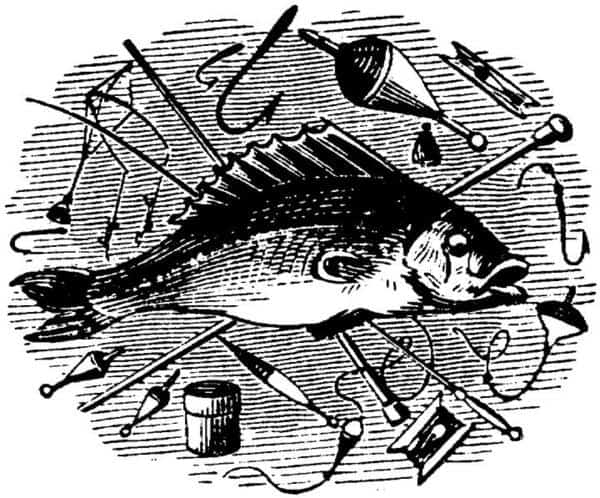Sporting Life

Time to Focus on Winter Maintenance
By Dennis Doyle
When temperatures begin to drop below 50 degrees, I begin to think of that horrible, impending task: winter tackle maintenance. It’s soon going to be too cold to be on the water. Possible hypothermia aside, as you get older or if you are more cold-sensitive to begin with, you realize that life is just too short to be miserable trying to have fun. Instead, it’s time to prepare your gear for winter storage.
Gather all your tackle in one area and winterize everything at once before moving it to a storage area. You will need: a lubricant spray such as WD-40 or even better, Corrosion X, plus a marine grade silicone spray, a thick piece of cotton cloth, reel grease and line preserver. Stubborn grime on rods or reels may require a stiff toothbrush or a mildly abrasive kitchen pad.
As you select each outfit, the first step will be to remove the reel from the rod. It’s tempting to leave the units assembled as you clean them but there are nooks and crannies that are unreachable and will cause trouble eventually. Use a toothbrush to work out the gunk stuck in the rod’s reel seat locking threads, the reel seat hood and around the locking knurls. Pay close attention to the reel mounting seats themselves and rub them with a soft cloth saturated with a rust preventative and lubricant.
Rub down the rod tubes and line guides, a lot of deposits will have accumulated over the past season; inspect all areas closely, especially the tip top and the first three guides where most of the wear and stress occurs.
Be sure that all ring guide inserts are in place. A missing ring in a line guide or tip top will absolutely shred your line if it is not replaced. Don’t try to re-glue it. That won’t work, it will just pop free again as soon as it’s under stress. Find a competent repairman at a sporting goods store and drop off the unit there. Replacement of a line guide is not a simple job, though it is generally inexpensive. Do not put it off until next season. Rod guide repairs take days in the off-season, but weeks and even months when the game is on.
When your rod and reel look sparkly fresh once again, re-assemble and spray the line on the spool with marine grade silicone or a line treatment spray. An automobile vinyl preservative such as Armor All will do nicely as an alternative. Really soak it, too much is not an issue here. The silicone in these products will soften and preserve monofilament and braided line over the winter and keep it manageable.
Discard the first 20 feet of line from each reel, it’s experienced the most wear. If you’ve got any knots, discolored or suspicious areas visible on the spool, pull off all the line for replacement in the spring. If you don’t strip it off now, you’ll forget and that will cost you the first big fish of next season.
Soak a toothbrush with your cleaner, scrub and then apply silicone or a good reel grease to all zippers on your tackle bags, personal flotation devices and foul weather gear. Work it into the length of the zipper. If you’re concerned about staining, use liquid dish soap. When it dries it will still act as a lubricant without harming the fabric, though it will eventually rinse off.
When you’re done, congratulate yourself and relax. It’s going to be another long winter. Now you can break out your bird and deer guns for some target practice. That’s the next adventure on your sporting calendar.
Fishfinder:
The shallow water bite is taking off with surface baits for rockfish finally getting their share of attention. Early and late in the day is the key for this bite, though working the birds on breakers around the edges can entice some keeper rockfish out of the scrum. Otherwise, metal jigs mimicking the size of the baitfish (small) will bring lots of action. The best tactic for keeper size rock, bigger blues and mackerel is to cast out as far as you can, let the lure sink to the bottom, then crank it back varying the speed. Chumming is producing better now with fish feeding up for winter, if small bluefish move in you may have to move your location. They won’t leave while there’s scent in the area. Live lining is enjoying its last hurrah, it’ll be over when the spot leave for the ocean soon. White perch have begun to move into deeper water from shallow structures but any warm spells will cause them to move back. Spanish mackerel are on their way out but remain active to our south. Spotted seatrout are hanging from Point Lookout all the way down to Tangier Sound and providing excellent sport. Some cobia may be mixed in so keep a good hold on your rod when jigging deeper water. Crabbing is at its best but you get in on it fast. As temps fall the jimmies will head for deeper water. And remember that all females are illegal for recreational crabbers. Throw them back, they are our future.
